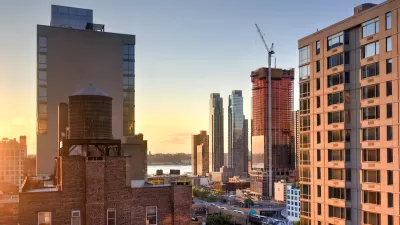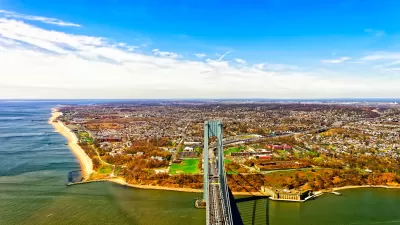The new system is designed to reduce travel time along a heavily congested north-south route on the city's East Side. However, unfamiliar ticketing protocols led to passenger confusion on the first day of operation.
The buses travel in express lanes on First and Second Avenues, but much of the timesavings is to come from sidewalk kiosk ticketing. When boarding the bus, passengers simply present a receipt rather than swiping a MetroCard or paying with exact change, a change that perplexed many early riders, reports Michael Gynbaum. The city hopes the practice will eventually reduce what is currently a 90-minute trip by 15 minutes.
Gynbaum writes:
'Traffic was predictably light on Sunday, and most passengers, asked if the bus was traveling faster than usual, said they could not make a meaningful comparison. The true test will probably come on Tuesday, the first full-fledged workday after the Columbus Day holiday, when the rush-hour crowds descend.'
The new system is the first for Manhattan but not for the city as a whole. Similar changes along a busy route in the Bronx improved travel times by 20 percent.
FULL STORY: Speedy Bus Routes Have Bumpy Manhattan Debut

Planetizen Federal Action Tracker
A weekly monitor of how Trump’s orders and actions are impacting planners and planning in America.

Maui's Vacation Rental Debate Turns Ugly
Verbal attacks, misinformation campaigns and fistfights plague a high-stakes debate to convert thousands of vacation rentals into long-term housing.

Cuomo Is the Candidate of Both NIMBYs and Developers. What Gives?
In the New York City mayoral race, odd bedfellows align to preserve the housing status quo.

San Antonio and Austin are Fusing Into one Massive Megaregion
The region spanning the two central Texas cities is growing fast, posing challenges for local infrastructure and water supplies.

Charlottesville Temporarily Has No Zoning Code
A judge ordered the Virginia city to throw out its newly revised zoning code, leaving permitting for new development in legal limbo.

In California Battle of Housing vs. Environment, Housing Just Won
A new state law significantly limits the power of CEQA, an environmental review law that served as a powerful tool for blocking new development.
Urban Design for Planners 1: Software Tools
This six-course series explores essential urban design concepts using open source software and equips planners with the tools they need to participate fully in the urban design process.
Planning for Universal Design
Learn the tools for implementing Universal Design in planning regulations.
Heyer Gruel & Associates PA
JM Goldson LLC
Custer County Colorado
City of Camden Redevelopment Agency
City of Astoria
Transportation Research & Education Center (TREC) at Portland State University
Jefferson Parish Government
Camden Redevelopment Agency
City of Claremont





























